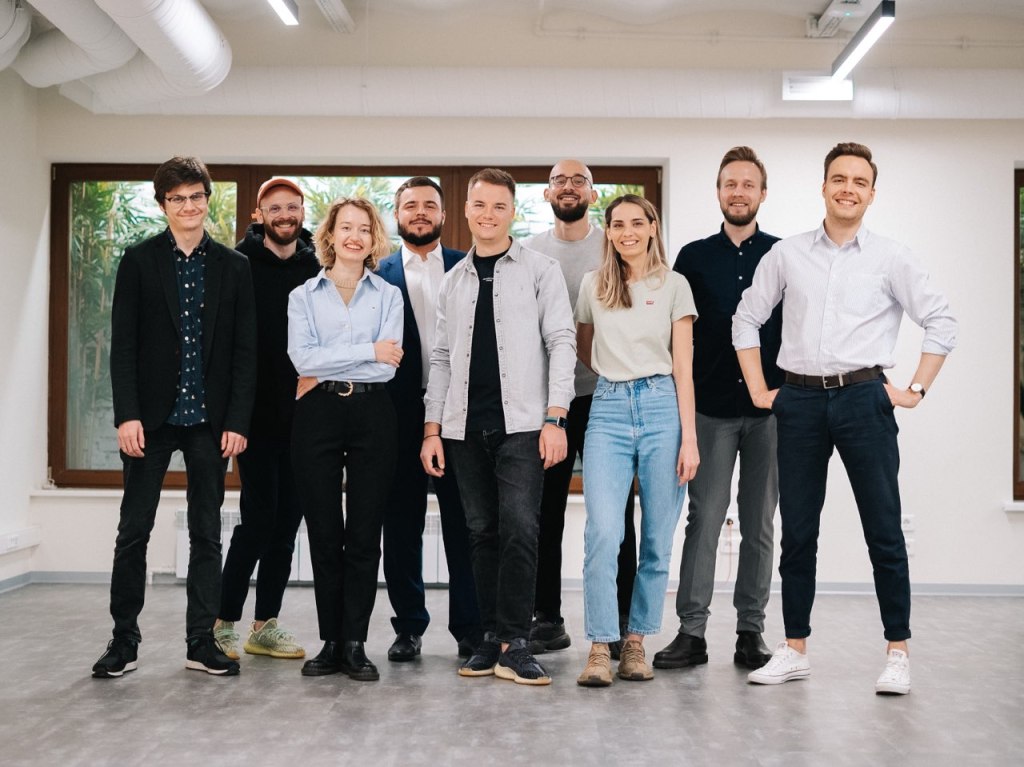London-based Kodland, which started out back in 2018 offering in-person courses for children to learn digital skills like computer programming before switching focus to online learning from early 2020, has closed a $9 million Series A funding round to scale into more markets.
The round is led by Redseed Ventures, with participation from Baring Vostok, Kismet, Flyer One Ventures and Alexander Nevinsky, a partner at New York-based I2BF.
Kodland’s remote courses for children aged 6-17 are currently available in the U.K., Ireland, the U.S., Canada, CIS Region, Malaysia, Indonesia and Argentina — with the startup offering proprietary localized content for each target region (although its users are spread across some 40 countries). So far, it says some 16,000 children have been signed up for its paid courses.
The new funding will be used to further expand the reach of its online courses.
The courses focus on group- and project-based learning, teaching kids digital skills including coding, website building, games creation, animation and video editing in a way that’s structured to be more fun and interactive than traditional classroom-based lessons. Although the online learning offered by Kodland’s platform is guided by teachers rather than self-serve.
Gift Guide: 20+ STEM toy gift ideas for aspiring young builders
Kodland says it has around 1,000 teachers on its platform (some are employed by it, some are gig workers, depending on the market); while the “typical” ratio is one teacher per 15 pupils. It notes its platform does also offer one-to-one teaching.
The edtech startup says it’s focused on extracurricular teaching of digital skills for kids versus selling tools and resources to schools as it’s easier to scale globally — meaning it skips the complexities of K12 procurement.
And with a nod towards the creator economy, it’s established its own “accelerator” — called Out of the Box — where it offers (extra) support to the most talented students to help them monetize their digital creations by turning them into “real-life” products.
Kodland’s latest tranche of funding — which brings its total raised to date to $11 million — will be used for market expansion, with courses in a further eight languages planned over the next two years. It says it will also be spending on product development.
“During 2022 we will expand further in English-speaking countries, in addition to U.K. and Ireland, enter Spanish-speaking countries and several countries in South-East Asia,” the startup tells TechCrunch.
A smaller slice of the funding will be ploughed into its accelerator program.
The Series A funding comes off the back of what Kodland bills as “considerable traction” with students and “robust top-line growth” — noting that it grew its revenue 6.5x in the third quarter of 2021 versus the same period last year.
Edtech generally has had a booming pandemic, given all the extra screen time caused by lockdowns and restrictions on in-person mixing — not to mention the demand for support as homeworking parents have sought tools to keep their offspring gainfully employed while they try to work.
That does mean competition is pretty heated, though.
Funding giants like SoftBank have been ploughing millions into the space and a clutch of edtech unicorns is also driving plenty of M&A activity. A bunch of cohort-based learning platforms has also been successful in attracting recent investment — by, similarly, seeking to bridge the gap between edtech and the creator economy.
Where kids are concerned, a giant of the category remains Roblox — which leverages social gaming to get children interested in learning programming and potentially earning money off of their creations.
Still, Kodland’s structure and focus — STEM skills for kids delivered via teacher-led classes — may help it carve a niche in the growing sea of edtech plays.
Billing itself as an “international online digital skills school for kids and teens”, its marketing is geared toward pitching parents on the notion of quality educational screen time for their offspring — selling bundles of four classes (aka a “module”) for €110; or a “complete” course of 32 classes from €660.
Commenting on the Series A in a statement, Eugene Belov, managing partner at Redseed, said: “Traditional educational institutions have a hard time keeping up with the rapid pace of technological development in today’s world. This often leads to a disconnect between the supply (skills and abilities of young graduates) and demand for talent (the requirements of modern workplaces). [Co-founders] Alexander [Nosulich] and Oleg [Kheyfets], are working hard on filling this gap by teaching their students skills which are very often left out of classical school programs, but which are becoming essential in today’s digital universe. And the unique result-oriented way their programs are structured make them highly appealing to modern kids. We are very excited to support Kodland on their journey.”
“There is no monopoly in the educational segment now, which means that more and more players are entering the market to meet the growing demand for educational services,” added Vital Laptenok, general partner at Flyer One Ventures, in another supporting statement. “Those who understand the real needs of their customers will be able to become major players and set trends in the market. The Kodland team focuses precisely on the practical knowledge and opportunities for children to learn relevant professions in an interactive manner.”
Edtech leans into the creator economy with cohort-based classes































Comment